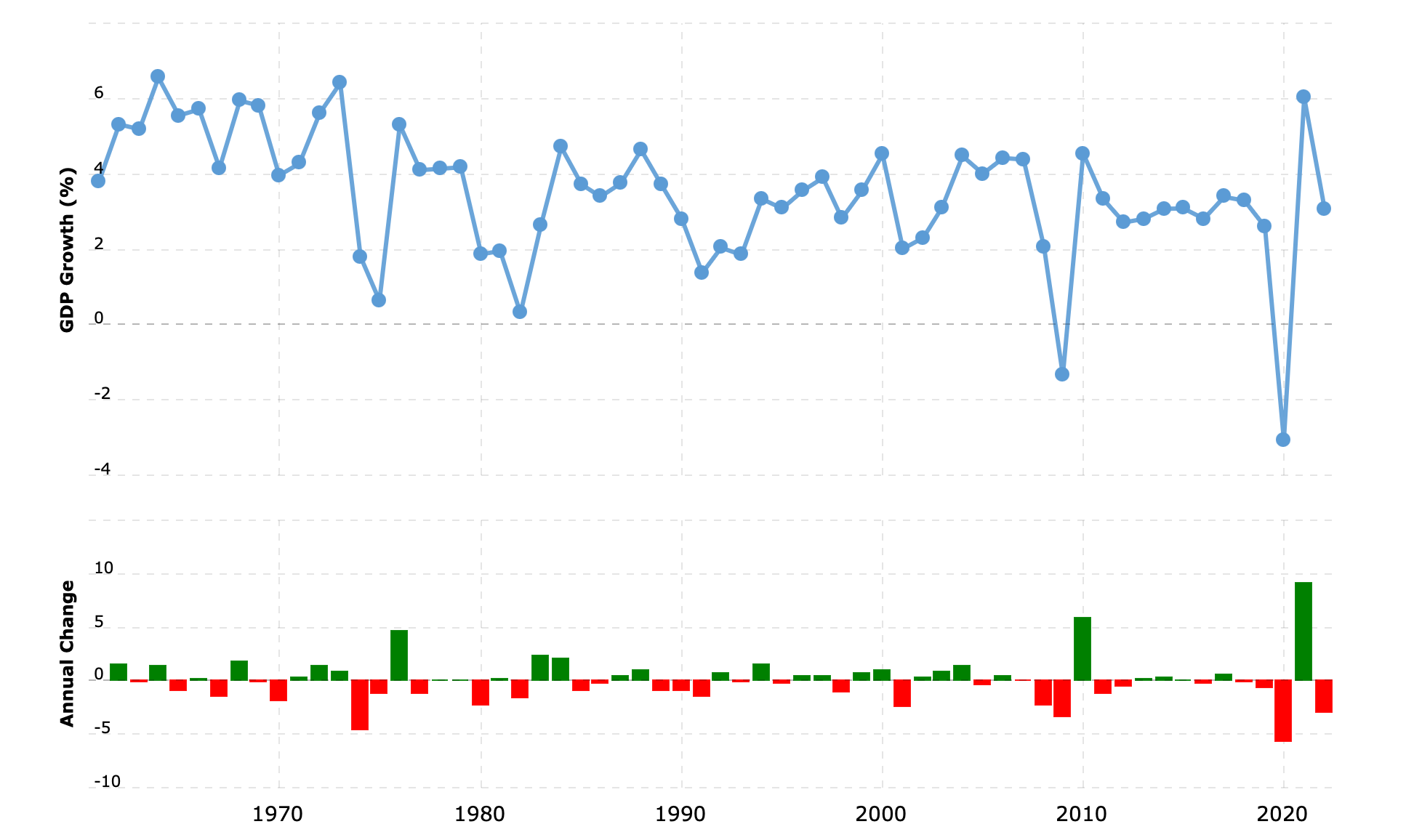Inclusive or.
E. g. 2028->2029 +12% or 2032->2033 -16%
People are also trading
@TamarSpoerri But seriously, I suck at economics. Can someone explain or point me to resources that explain what makes volatility more likely?
@TamarSpoerri I'm personally looking at this as a AGI/WW3 market, plus a percent or two for a runaway global warming feedback loop or some other revolutionary technology.
See base rate here. The biggest Δ%s have been the following:
2020->2021 +9.1 Rebound from COVID-19
2009->2010 +5.8 Rebound from the housing market collapse
2019->2020 -5.7 COVID-19 pandemic
1975->1976 +4.7 Rebound from the oil crisis
1973->1974 -4.6 Oil crisis
2008->2009 -3.4 Housing market collapse
@TamarSpoerri Note that my attribution of the 2007-2009 financial crisis to the housing market collapse is an oversimplification and one narrative of many.
@TamarSpoerri Except for COVID these are all relatively far from 10%, no? What’s the argument for YES based on this data?
@NicoDelon True. The argument for YES is extrapolating from this dataset that world GDP volatility will continue to increase.
@Planarian Exactly as the question says, if you think GDP will either rise or fall by at least 10% YoY (in at least one year), thats YES.
